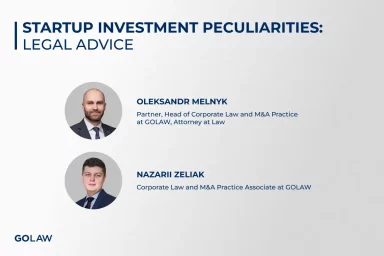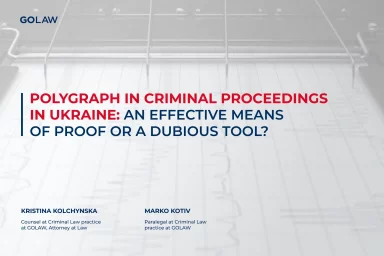Recovery of expenses for professional legal aid: practice, problems and prospects
Contents
At the same time, the parties to the dispute have a natural question: “Why should I have to pay for legal assistance if I am not the one violating rights and interests?”
This is a logical question, and that is why the law provides for the possibility of reimbursement of such expenses in case of a favorable resolution of the case for the party. However, in practice, the procedure for expenses reimbursement often conceals a number of problems, as courts usually only partially reimburse expenses.
Why is it not always possible to reimburse the costs of legal assistance?
Courts may refuse or reduce the amount of reimbursement based on various factors:
- unreasonableness of expenses and lack of evidence: if a party fails to properly prove the connection between the expenses incurred and the litigation, the court may decide that the expenses were not directly related to the case;
- disproportionality of the legal fees: in the court’s opinion, the claimed amount of legal fees may not correspond to the complexity of the case, the time spent by the lawyer on the case or the value of the case for the parties involved;
- partial satisfaction of the claim: if the claim is only partially upheld, the legal costs are reimbursed proportionally to the successful part of the claim;
- Improper conduct by f the party: if the court believes that the party delayed the process, abused its rights, filed excessive or unreasonable motions, it may reduce the amount of compensation;
- court discretion : the court independently assess whether the claimed expenses are necessary and reasonable. As a result, even in very similar cases, the amount of costs to be recovered may vary greatly.
Given the above, most lawyers before taking on a case inform their clients about the risks of the court refusing or reducing the claimed amount of expenses for professional legal assistance. However, practice shows that proper substantiation of the claimed expenses increases the chances of receiving compensation.
Criteria to be considered by the court when deciding on reimbursement
When determining the reasonableness of expenses, the court takes into account:
- whether the costs were directly related to the consideration of the case;
- whether the costs correspond to the complexity of the case and the value of the claim;
- whether the expenses are proportionate to the amount of work performed by the attorney and the importance of the case for the party.
Not all expenses will be recognized by the court as necessary. For example, the current case law shows that courts do not recognize as legal assistance the meetings of an attorney with a client, coordination of procedural documents, the time spent by an attorney for travelling to court, the preparation of an application for recovery of expenses for professional legal assistance, etc. In other words, the court may deduct the specified scope of work and services of a lawyer from the amount of legal fees claimed by a party.
How to avoid a reduction in compensation?
In order to avoid a reduction in the compensation amount , it is necessary to:
- provide a detailed report on all incurred expenses (contracts, acts and descriptions of work performed, invoices, payment instructions);
- prove that the expenses are related to the litigation;
- justify the amount of expenses in accordance with the complexity of the case;
- show that the expenses were reasonable and unavoidable.
The court pays particular attention to the behavior of the parties during the proceedings. If one party has delayed the proceedings, filed unfounded motions or deliberately complicated the process, this may affect the decision on the compensation of costs.
The Supreme Court has repeatedly emphasized that reimbursement of legal assistance costs is not automatic. Even if the court rules in favor of a party, it may partially or completely refuse to reimburse costs.
The European Court of Human Rights also stresses that when determining the amount of compensation, the court must proceed from the following criteria: the reality of the attorney’s fees, the reasonableness of their amount, based on the specific circumstances of the case and the financial situation of the parties. This opinion is illustrated, in particular, in the ECHR judgment on the case of East/west Alliance Limited v. Ukraine.
What the amounts for legal assistance are typically awarded by the court?
As a rule, the courts are reluctant to award amounts exceeding UAH 30,000, although there are always exceptions to the “rules”.
For example, in case No. 910/4881/18, the Supreme Court upheld the decisions of the previous instances and ordered the defendant to reimburse the plaintiff UAH 337,665.08 of legal assistance costs.
In case No. 910/9668/23, the Commercial Court of Kyiv awarded the party the compensation of UAH 100,000.00 out of the UAH 316,000.00 claimed . The decision was upheld on appeal.
By an additional Ruling of the South-Western Commercial Court of Appeal in case No. 916/1618/20, the court awarded UAH 200,000.00 of legal costs in favor of the applicant.
In case No. 924/866/21, the court of first instance recovered UAH 464,290.85 of professional legal assistance costs in favor of the plaintiff. However, when reviewing such a decision, the North-Western Commercial Court of Appeal reduced this amount to UAH 176,088.48, which remained unchanged after the cassation review.
GOLAW attorneys also received a number of favorable decisions for their clients. In particular, in case No. 910/11809/24, the court decided to compensate the plaintiff UAH 50,000, and in case No. 910/11813/24, the court ordered the defendant to pay UAH 230,850 of professional legal assistance costs.
Conclusions
It is entirely possible to impose the costs of legal assistance to the opposing party but full reimbursement is not guaranteed.
The court assesses the justification, proportionality and actual necessity of the claimed expenses and determines the amount to be recovered based on its own discretion.
Proper documentation and justification significantly increase the chances of a favorable decision.
Case law shows that reimbursements exceeding UAH 30,000 are achievable.
Overall, while courts tend to limit compensation amounts, a careful approach to collecting evidence, properly substantiating expenses and maintaining a consistent legal strategy can significantly increase the amount of compensation.

Anastasiia Klian
Counsel, Attorney at Law
- Contacts
- 31/33 Kniaziv Ostrozkykh St, Zorianyi Business Center, Kyiv, Ukraine, 01010
- a.klian@golaw.ua
- +38 044 581 1220
Get in touch
To get a consultation, please fill out the form below or call us right away:Sign up to be aware
New achievements are inspired by information. GO further, don’t miss out GOLAW news and legal alerts
Our expertise
-
- Energy and Natural Resources
- Antitrust and Competition
- Banking and Finance
- Compliance, Corporate Governance and Risk Management
- Corporate and M&A
- Criminal and White Collar Defence
- Defense in Anti-corruption procedures and regulations
- Labor and Employment
- Natural Resources and Environment
- Government Relations (GR)
- Insolvency and Corporate Recovery
- Intellectual property
- International trade
- Legal support of business and private Сlients in Germany
- Litigation and dispute resolution
- Private clients
- Real Estate and Construction
- Restructuring, Claims and Recoveries
- Martial Law
- Tax and Customs
-
- Agribusiness
- Aviation
- Chemical industry
- Engineering, Construction and Building Materials
- Natural Resources and Environment
- Financial institutions
- IT and AI
- Industry and manufacturing
- Healthcare industries, Life sciences and Pharmaceuticals
- Media, Entertainment, Sports and Gambling
- Retail, FMCG and E-Commerce
- Transport and Logistics
We use cookies to improve performance of our website and your user experience.
Cookies policy
Cookies settings







